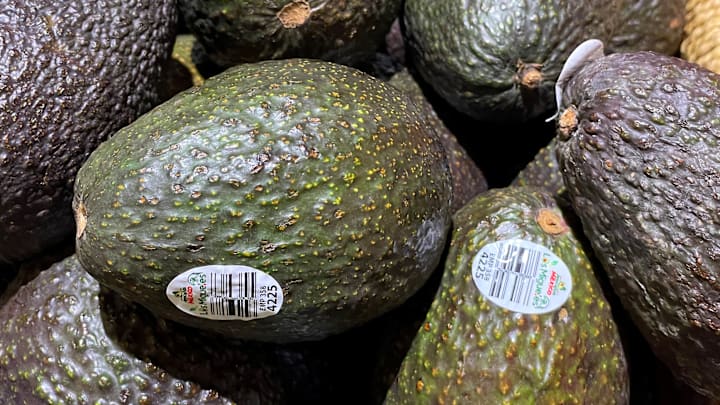Avocados: you know them, you love them. They’re full of protein, and delicious on toast, or mashed for a nice guacamole. But where does the word avocado come from? Turns out the avocado word origin is relatively recent - but what came before the invention of avocado might make you never look at the fruit the same way again.
That’s because originally, avocados were named after testicles.
The avocado’s word origin stems back to the Nahuatl language
Avocados, before they were called that, actually stem back thousands of years – and perhaps longer than that, as the origin of the fruit is unknown. However, according to Avocados from Mexico, they may stem back to Puebla in South Central Mexico, from almost 10,000 years ago.
Also from the site, they note historians believe the fruit was first domesticated 5,000 years ago, around the same time as the advent of the wheel. Imagine if we used avocados as wheels! That would have been weird.
In any case, somewhere along the way the Aztecs and the Maya, among other tribes, became obsessed with the avocado, to the point that the latter made the glyph of the fourteenth month on their calendar an avocado. That said, at that point the fruit wasn’t called avocado… It was called āhuacatl by those who used the Nahuatl language.
This is where you might see a little confusion online because Nahuatl was a language used by both the Aztecs and the Nahua. The two tribes lived in the same area, and had a shared origin myth, but the Aztecs didn’t arise until about 125 years after the Nahua tribe fell.
Point being, it is not known which tribe named the fruit āhuacatl, though a likely guess is the Nahua since they came first. Regardless, there are no two ways about it: āhuacatl was the Nahua and Aztec word for “testicles.” Because, now that you know that, you can’t unsee avocados as looking like testicles, hanging from a tree.

Avocado etymology developed thanks to Spanish conquistadors
Probably not a surprise to any student of history, when the Spanish arrived they gave the avocado their own name: ahuacate, or aguacate, or palta. Why the three names? The first two are probably bastardizations of each other, but the third is an adoption of the Inca name for avocados, as that tribe had relatively recently discovered the fruit themselves.
All three names can be first attributed in Spanish history to Pedro do Cieza de Leon, some time between 1532 and 1550; and soon other Spaniards were also adopting this name for the fruit, pushing the “testicle” origin to the side in favor of the Spanish translation of ahuacate, which means “alligator pear.” It was given that name for obvious reasons: it’s shaped like a pear, and the skin looks like an alligator. It also probably caused less giggles than āhuacatl.
So why are they called avocados? Thank California for the origin of the word
In 1915, a group of farmers met in the Hotel Alexandria in Los Angeles to discuss how best to sell avocados to the general public – and California avocados in particular. They eventually settled on renaming the fruit "avocado," more pronounceable for the American public – which was at the time obsessed with the fruit – and didn’t have the negative association of either testicles or alligator pears.
Not only that, they set the plural of avocado as "avocados" with the dictionary, instead of "avocadoes," and from there they were off to the races. According to NPR, California avocados account for 90% of the crop sold in the United States.

What does guacamole mean? Is it “testicle sauce”?
So to bring it back to the original etymology, is guacamole technically “testicle sauce?” While the word seems to be a derivation of āhuacamōlli, which is a combination of āhuacatl (“testicles”) and mōlli (Nahuatl for “sauce”), guacamole wasn’t invented until the Spanish had already coopted the fruit and named it ahuacate.
So if anything, it means “alligator pear sauce” which has way less of a chance of making your dinner guests choke in surprise when you drop that fun fact at your next Taco Tuesday.
Got questions about history, trivia, or anything else? Send an email to askeverest@fansided.com and we might answer here on the site!
